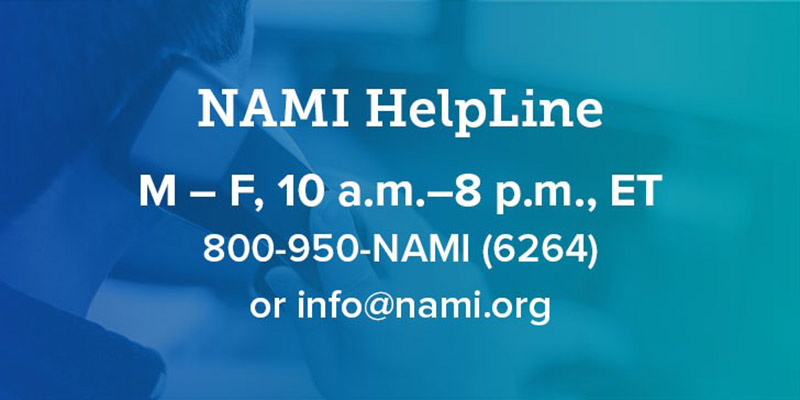- The Ultimate Guide to Journaling: How To Teach Expressive Writing - June 13, 2022
- Journaling: How To Use Writing To Support Your Mental Health - May 27, 2022
- How To Honor National Mental Illness Awareness Month With Action - October 3, 2021
Last Updated on October 23, 2024
The year 2020 will go down in history as a real dumpster fire. Illness, fear, isolation, job loss, business closures, and US death rates all reached unprecedented levels, save for the Great Depression. All the traumatic fallout from COVID-19 consisted of events I’d never witnessed in my 65 years, except perhaps for one: people experiencing mental health crises such as anxiety, depression, and suicidal ideations. Add to those increased alcohol and illegal drug consumption.
The Pandemic and New Diagnoses
Despite the fact that 1 in 5 adults in the US has a mental health diagnosis, 1 in 6 children and teens do as well, and 8.4 million of us are caregivers to someone with a mental illness—despite those stats—many people have never before dealt with any form of mental illness, even those as ubiquitous as anxiety and depression. At least not until 2020.
A Report on The Pandemic Mental Health Crisis
According to Mental Health America (MHA), in its report on the mental health crisis generated by COVID-19:
 The number of people looking for help with anxiety and depression has skyrocketed.
The number of people looking for help with anxiety and depression has skyrocketed.
In 2020, from January to September, 315,220 people took the HMA anxiety screen, a 93 percent increase over the 2019 total number of anxiety screens. During that same period, 534,784 people took the depression screen, a 62 percent increase over the 2019 total number of depression screens.
The number of people screening with moderate to severe symptoms of depression and anxiety has continued to increase throughout 2020 and remains higher than rates prior to COVID-19.
In September 2020, the rate of moderate to severe anxiety peaked, with more than 8 in 10 people who took an anxiety screen scoring with moderate to severe symptoms. More than 8 in 10 people who took a depression screen have scored with symptoms of moderate to severe depression consistently since the beginning of the pandemic in March 2020.
More people are reporting frequent thoughts of suicide and self-harm than have ever been recorded in the MHA Screening program since its launch in 2014.
Since the COVID-19 pandemic began to spread rapidly in March 2020, more than 178,000 people have reported frequent suicidal ideation and 37 percent of people reported having thoughts of suicide more than half or nearly every day in September 2020.
Similar dismal numbers were reported for teens, older people, and LGBTQ+ communities.
Support For Those Struggling During the Pandemic
According to NAMI, based in Arlington, Virginia, currently mental health experts suggest that at least 2 in 5 people now say they are experiencing daily anxiety and depression. In comparison to 2019, the NAMI HelpLine has experienced a 70% increase in phone calls, emails, letters and social media requests.
The NAMI Helpline

I have been a volunteer for the past seven years for an affiliate of the National Alliance on Mental Illness (NAMI, nah-mee) in East Tennessee. I’ve worn many hats for my affiliate, including board chair for five years, outreach and education coordinators, and media liaison. It was time-consuming but gratifying work. Even now, though I’ve left the board, I remain a Family-to-Family instructor.
I can report from personal experience that calls to our local NAMI HelpLine increased threefold in 2020, and this was true for affiliates throughout my state. In October 2020, I was asked to give a presentation on mental well-being and mental health techniques to a local community group whose members were expressing fear and worry about the pandemic. Twenty-four people attended the Zoom meeting, none of whom has ever been diagnosed with or sought help for a mental health concern in the past.
The Demons Come a-Knocking
COVID-19 has taught everyone who’s paying attention that our country and our world were not equipped to handle the threat of a pandemic, but those of us in the mental healthcare community have learned how people who don’t usually think about anxiety, depression, and suicide sure do think about them when those demons come a-knocking on their own doors.
My question is, will people recover to their pre-COVID mental health states once the country and the world have this pandemic (seemingly) under control? If so, will these folks remember what it felt like to live each day and night wrapped in runaway anxious obsessive thinking, deep depression, and contemplation of ending their lives? Or will they conveniently forget about those devastating thoughts and emotions?
What I have said to people who have expressed their mental health challenges to me in recent months is, you are now feeling the way some folks feel every day for years, even decades, at a time. For tens of millions of Americans, these feelings of fear, pain, and hopelessness have been going on for all or most of their adult lives. Those who were diagnosed with mental health disorders prior to 2020 have suffered indescribably in the last year, even though their plight often took a back seat to the new wave of anxiety and depression attributed to the pandemic. When this pandemic has passed, these folks will still be in emotional and physical pain.
Increased Awareness Because of the Pandemic
I believe good things can come from the awfulness of our 12+ months of being held hostage by a pandemic. And one of those good things is an increased awareness of mental health crises and the debilitating effects of anxiety and depression. People in record numbers have sought out mental health counselors and therapists, primarily online services. Friends of mine who are professional therapists and counselors have received more requests for appointments than they can handle.
My hope is that this dark time for our nation will result in an increased appreciation and empathy for anyone struggling with a mental health condition. Look around you. Look in the mirror. So many of us must face up to a realization that we can be challenged by a mental illness as easily as a physical illness. There’s no shame in that.
[Are you ready to get started? Read Make a Difference with Mental Health Activism.]
Read Trish Lockard’s Series on Mental Health Awareness
- With Mental Illness You Won’t Get a Casserole
- Stigma: A Thorn in the Side of Mental Health Care
- 12 Creative Ways to Support Mental Health
How Do Activists Describe the Cause Closest to Their Heart?
How a Boundaries Book Can Teach You To Be a Motivated Volunteer

 The number of people looking for help with anxiety and depression has skyrocketed.
The number of people looking for help with anxiety and depression has skyrocketed.


They keep saying here in Australia that the lockdowns didnt cause any more mental health, but I def think thats wrong. Me who has always been upbeat struggled last year. Mind you they did say that violence in the home increased during lockdowns. I feel for all of those that were locked in the home with those that caused mental anguish etc….#SeniSal
Hi Bree,
I hope you are emerging from your pandemic struggle, and getting care if you still need it. I agree with you that it is likely that more people struggled with mental health during the pandemic. I hope that one outcome is a better sense of what those with a diagnosis go through every day. Thank you for stopping by and best wishes.
Terri
Pingback: Stigma: A Thorn in the Side of Mental Health Care
Pingback: Monday InLinkz Join us at 163 Senior Salon • Esme Salon
Pingback: The Olympics Open the Door to an Athlete Mental Health Conversation
Pingback: Suicide Prevention at the Heart of Activist’s Memorial Efforts
Pingback: With Mental Illness You Won’t Get a Casserole
Pingback: Get Started: Gabe Howard Encourages Action, Not Perfection
Pingback: Make a Difference with Mental Health Activism
Pingback: Journaling: How To Use Writing To Support Your Mental Health
Pingback: How Employees Can Make a Difference for Mental Health in the Workplace